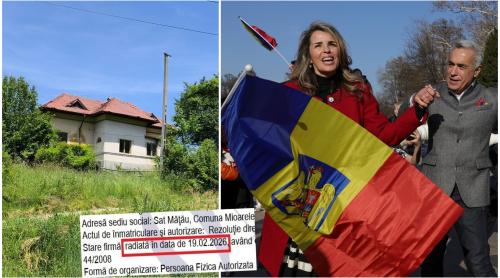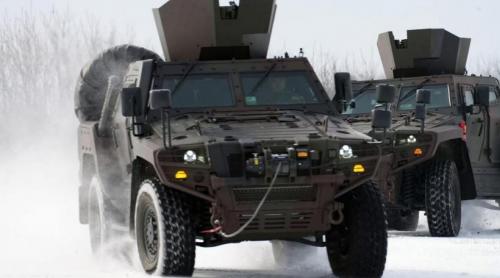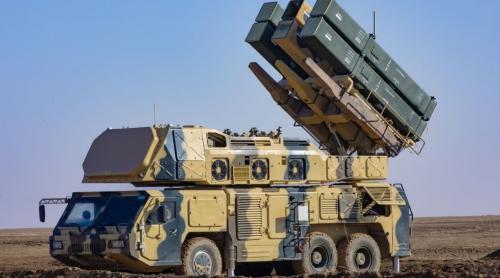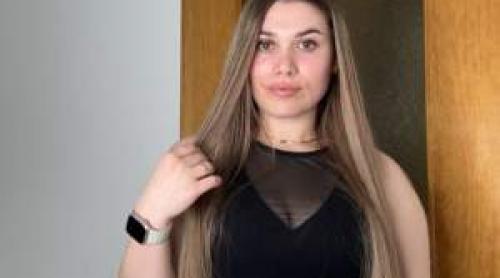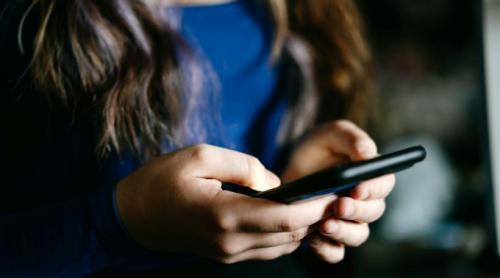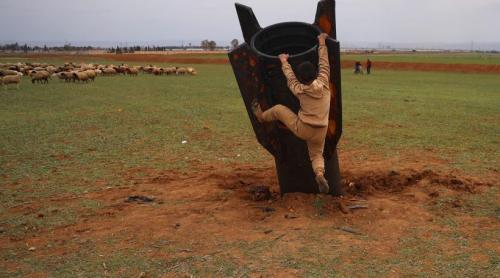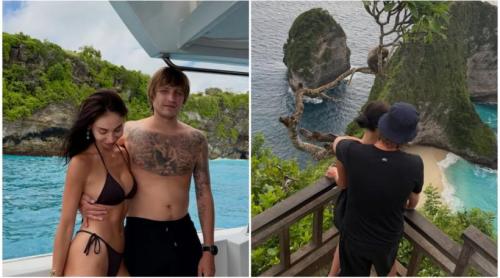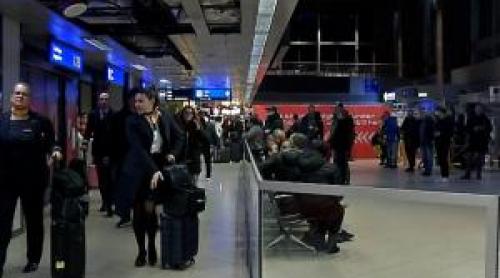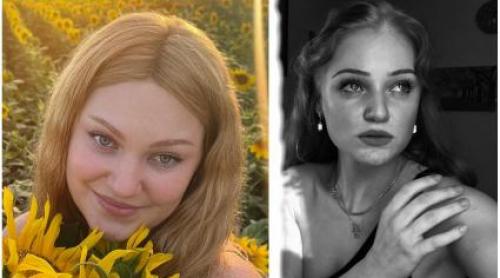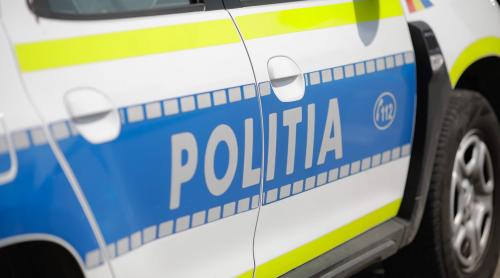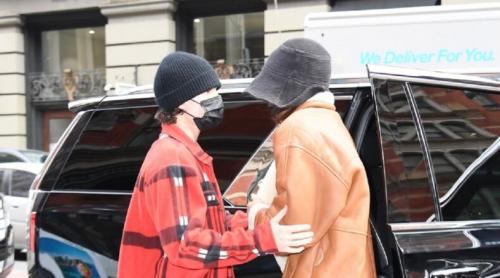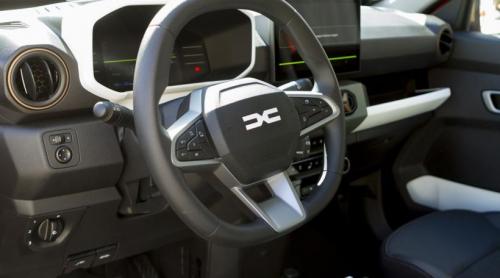
Marie-Jeanne Ion and Sorin Miscoci, of Prima TV, went back to work yesterday, one week after their release from their imprisonment by hostage takers in Iraq. The first order of business for them was to give the account of the expenses they made there.
Ovidiu Ohanesian, the third Romanian journalist kidnapped, working for Romania Libera daily, accompanied them.
|
|
|
 |
Marie-Jeanne Ion hugged all her colleagues at Prima TV, yesterday |
Both he and Marie-Jeanne will go on a one-month vacation, though Miscoci said that all he wants is cover news again. "The feeling of meeting our colleagues was wonderful," he added. Miscoci will marry his fiancée on September 3. "I can hardly wait for that," said he.
All three journalists met yesterday the presidential spokesperson, Adriana Saftoiu, to get the CDs the presidency compiled for them, comprising the results of the monitoring of all media reports on their captivity.
"Reporters without Borders" was shocked to learn the information presented by the Romanian authorities, which found that the kidnapping of the three Romanian journalists was [initially] doctored by the Syrian businessman Omar Hayssam, in Bucharest, [to later get out of hand].
In a letter signed with the Media Monitoring Agency, RWB says it trusts the Romanian judiciary will make all efforts necessary to solve this case which had the making of a set-up.
Both Ion and Miscoci gave a short interview to their colleagues at Prima TV, broadcast live during the news cast:
Q: How is it to be free?
Marie-Jeanne Ion: I cannot tell if one can provide a definition of freedom. Freedom is something you do not know what it is until you lose it. I think the three of us learned through that experience that freedom is the most cherished gift for a man. A man is built to be free. One cannot survive too long in the absence of freedom; the abilities one has to fight captivity are limited.
Sorin Miscoci: I find it hard to put it in words. I cannot say too much, except for the fact that it is wonderful feeling [to be free]. We feel things we did not know were there before. Even then word "freedom" got a whole new meaning â¦
Sorin Miscoci: I find it hard to put it in words. I cannot say too much, except for the fact that it is wonderful feeling [to be free]. We feel things we did not know were there before. Even then word "freedom" got a whole new meaning â¦
Q: How did the kidnapping occur?
MJI: We were all in a car, coming back from an interview, and heading towards the hotel. A white car cut our way while honking and using a siren-like sound, [as a police car would have had.]
SM: Yes, while they were honking a siren was also used.
MJI: It was going dark. We thought it was a police car. It cut our way. Our driver, Mohamad Munaf, stopped the car and said: "What now?" - it would have been impossible for us to avoid stopping the car if indeed the one waving us to stop was a police car. The people in that car were armed with Kalashnikovs.
SM: One thing I found out after our release, as explained by the psychologists that talked to us, was that our memories are limited because the "tunnel vision" effect took over. I, for one, remember only the armed person standing right in front of me.
MJ: I remember only the back of the car, which was very wide. It was a white car, and there were a lot of machine-guns and black pistols brandished.
SM: Yes, while they were honking a siren was also used.
MJI: It was going dark. We thought it was a police car. It cut our way. Our driver, Mohamad Munaf, stopped the car and said: "What now?" - it would have been impossible for us to avoid stopping the car if indeed the one waving us to stop was a police car. The people in that car were armed with Kalashnikovs.
SM: One thing I found out after our release, as explained by the psychologists that talked to us, was that our memories are limited because the "tunnel vision" effect took over. I, for one, remember only the armed person standing right in front of me.
MJ: I remember only the back of the car, which was very wide. It was a white car, and there were a lot of machine-guns and black pistols brandished.
Q: Do you have any idea who kidnapped you?
MJ: We do know the name of the group which claimed to have kidnapped us. We cannot tell more than that since the investigation is ongoing. Probably more information will become available in time.
Q: How were you treated?
SM: In 55 days we took six showers; we ate sandwiches for breakfast, lunch and dinner; we had water. The boys could go to toilet once daily, while girls three times a day.
Q: Which was the most terrifying moment for you? Did you feel at any one time you were about to be killed?
MJ: I was the first to feel this. They became very nervous when they found out I sent messages [via the mobile phone] back home telling we were kidnapped. They found out from the media, long before they were able to make public their action. They showed me the sign of the hand cutting across the throat, [to show what I was about to experience], and they were seriously meaning it.
Translation ANCA PADURARU
Citește pe Antena3.ro


